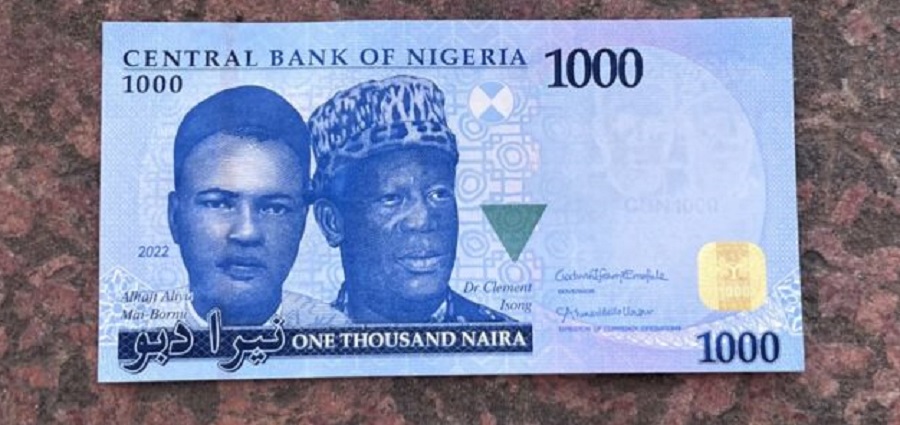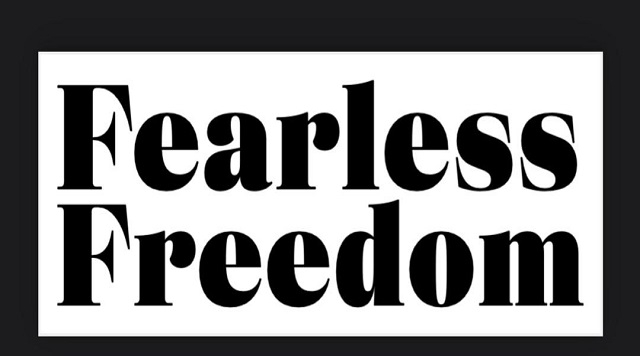General News
How COVID-19 Awareness Campaign Earned ID Africa Global SABRE Recognition

ID Africa, a pan-African communications advisory firm, has made its debut on the global public relations and communications awards table, with a prestigious nomination at the forthcoming SABRE Awards EMEA as well as a certificate of recognition at the SABRE Awards Africa.

Femi Falodun, CEO, ID Africa,
The acknowledgements were earned for the firm’s work on the 2021 CSR campaign, Project SafeUp, executed for My World of Bags (MWOB) in partnership with the Mastercard Foundation.
ID Africa was awarded a Certificate of Excellence in the ‘Not for Profit/Charities’ category alongside four other nominees from Kenya, South Africa and Uganda at the SABRE Awards Africa.
It also received its first SABRE Awards EMEA nomination in the category ‘Africa’ in the company’s first-ever EMEA SABRE entry.
Project SafeUp, an initiative of luxury design and manufacturing company, My World of Bags (MWOB) in partnership with the Mastercard Foundation, provided 1.5 million PPE materials across South-West Nigeria between 2020 and 2021. ID Africa provided communications strategy, and execution support building awareness and interest through creative storytelling at community level, as well as using local advocates and electronic mass media.
Femi Falodun, CEO, ID Africa, said, “The SABRE Awards puts a spotlight on the industry’s most compelling work, especially communication programmes that drive real social and business impact. So, it is an honour to be recognised for the work we do at ID Africa.

“We have spent the past seven years developing a unique approach to communications, and we are truly delighted to be taking this model to new markets as we expand across Africa. Our mission remains to help individuals, brands, businesses, and governments understand and connect better with the people they care about.”
The campaign achieved over 300 mentions in 60 days on print, online, social media and radio platforms across the country. And had a staggering online readership of over 100 million users, with 26 indigenous radio content and presenter sessions reaching an estimated 2 million in Lagos and Osun state over the course of a month.
The SABRE Awards Africa, which recognises Superior Achievement in Branding, Reputation, and Engagement, will be announced at the Africa SABRE award ceremony on May 25, as part of the 2022 African Public Relations Conference.
While the 2022 SABRE Awards EMEA shortlist includes over 400 campaigns, selected from among more than 2,000 entries in this year’s competition and are evaluated by a jury of industry leaders. The 18th edition of the SABRE Awards EMEA will take place at The Guildhall in London on May 27th.
General News
NOA Warns of Fake N1000 Notes in Circulation, How to Identify Them

National Orientation Agency (NOA) in Kwara has cautioned the public on fake N1000 notes circulating in the state.

Alhaji Abdulganiyu Dare, state director of NOA, disclosed this in a statement issued in Ilorin.
Dare emphasised the need for vigilance among residents and business owners in the state.
According to him, there is confirmed intelligence reports of syndicates flooding the area with counterfeit currency with batch numbers 364232 and 898248.
Dare said the counterfeit notes can be identified by their blurred portraits, watermarks, and irregular security features.
He urged the public to be cautious when handling large sums of money.
“The syndicates behind this crime exploit peak commercial hours in major local markets to carry out transactions with counterfeit notes.
“They target unsuspecting POS operators and merchants by defrauding them of their hard-earned money.
“NOA Kwara Directorate is committed to sensitising the public on the dangers of fake currency and the importance of verifying the authenticity of banknotes.
“The agency is working tirelessly to ensure that residents of Kwara are protected from financial scams,” he said.
While describing the crime as unpatriotic and capable of distorting the Nigerian economy, Dare said NOA would work closely with security agencies to bring the culprits to book.
The director advised residents to report any suspicious transactions or individuals to the authorities immediately.
“Together, we can build a safer and more secure financial environment for all residents of Kwara.
“By working together, the NOA and the public can prevent the circulation of fake currency and protect the financial interests of Kwara residents,” he said.
General News
NCC, IHS Towers Lead Others To NITRA-ALTON CNII & Telecom Sustainability Conference 2025

Telecom industry regulator, the Nigerian Communications Commission (NCC) and other industry operators, including IHS Towers, Digital Realty and 9mobile Nigeria, have joined the line of partners that will chart the way forward as stakeholders gather for the Maiden Edition of the CNII & Telecom Sustainability Conference 2025 being organized as a collaboration between media body, the Nigeria Information Technology Association (NITRA) and Industry advocacy group, the Association of Licenced Telecom Operators of Nigeria (ALTON).

Scheduled for August 7, 2025 in Lagos, the event, which is expected to host the Minister of Communication, Innovation and Digital Economy, Dr. Bosun Tijani, will also bring stakeholders from Nigeria Security and Civil Defence Corps (NSCDC) and the Peace Corps Nigeria, to discuss the security of infrastructure, stakeholders’ roles, and the practical implementation of the Critical National Information Infrastructure (CNII) Presidential Order.
Headlining the event, with its theme as “Telecoms Industry Sustainability and the CNII Act – Way Forward”, IHS Towers will throw light on the state of infrastructure in the country, while the Panel Session will discuss the “Role expectations of stakeholders in the implementation of the CNII Act”
Keynote speeches will come from the NCC EVC, Dr. Aminu Maida and the President of the Association of Telecommunication Companies of Nigeria (ATCON).
The Nigerian Designation and Protection of Critical National Information Infrastructure (CNII) Order, 2024, aims to safeguard critical infrastructure like telecommunications networks, financial systems, and power grids by designating them as CNII and outlining measures for their protection. This order, signed in June 2024, is an extension of the Cybercrimes Act of 2015 and seeks to reduce disruptions to these vital systems.
Some of the questions stakeholders will give answers to at the Panel Discussion include:
- How do we ensure that this Order is implemented to the letter?
- What are the roles of each stakeholder in the industry – Federal, States, Operators, Consumers, and other actors?
- Are telecom companies keying into the CNII provisions, and how?
- Are there areas worth looking into once more, or is the Order perfect as it is?
- What is the role of regulators in ensuring public compliance to the Bill?
- How do we ensure security?
- What is the place of collaboration?
- Publicity: how much of the CNII provisions are the public aware of?
- How can we sustain the growth and development of telecommunications in Nigeria?
According to the General Secretary of NITRA, Mr. Chidiebere Nwankwo, this industry collaborative event will afford stakeholders in the public and private sectors the opportunity to sit back together and review how well the CNII Order has thus far been implemented, and to re-strategise, if need be, on the way forward.
“This event is key because it will bring Stakeholders to the CNII plan to a roundtable to re-evaluate the decision, make amends and continue the journey. This has to be a periodic gathering to make the goals of this order achievable,” he said.
ALTON is the official private sector industry body for all providers of telecommunications and subsidiary services in Nigeria.
The Chairman of ALTON, Engr. Gbenga Adebayo and the Chairman of NITRA, Mr. Chike Onwuegbuchi will be on hand to welcome industry stakeholders.
General News
Fearless Freedom Launches to Tackle Inequality and Champion Global Economic Inclusion

Fearless Freedom, a bold new global advocacy initiative focused on ending economic inequality and expanding economic opportunity, officially launches today, 2nd August, 2025.

Backed by the founder of Fearless Fund, the first venture capital fund in the U.S. built by women of color for women of color, this new chapter builds on a legacy of breaking barriers and driving inclusive progress.
The launch of Fearless Freedom comes nearly one year after the dismissal of a federal lawsuit that challenged the organization’s efforts to empower underrepresented communities. The case, which drew national attention, was filed on August 2, 2023, and dismissed permanently on September 11, 2024.
Fearless Freedom is not just an advocacy; it is a global movement for visibility, justice, and financial equity. Through storytelling, policy conversations, and creative programming, Fearless Freedom is reclaiming space, spotlighting the real challenges, and championing the people building powerful solutions.
“Fearless Freedom is our global declaration, a refusal to be silenced, erased, or sidelined,“ said HM Queen Wa Arian Simone, CEO of Fearless Fund. “We’re not just funding change anymore, we’re amplifying the voices that have always driven it. This initiative is about power, presence, and rewriting the rules of who gets seen, supported, and heard.”
“August 2nd was once about legal resistance. From now on, it marks something else: a day of fearless expression and global visibility,” she added.
As a global advocacy initiative, Fearless Freedom will spark meaningful dialogue around economic inclusion, inviting communities to reflect, learn, and speak out against financial inequality, all through creative expression and powerful storytelling.

 Telecom2 days ago
Telecom2 days agoHistory as MTN Nigeria Becomes First to Hit ₦10 Trillion Market Cap @ NGX

 Telecom2 days ago
Telecom2 days agoMTN Nigeria’s CAPEX Soars Nearly 300 Percent to ₦565.7Bn in Q1 2025

 Telecom2 days ago
Telecom2 days agoMTN Nigeria Celebrates Super Falcons with ₦150 Million Reward After WAFCON Triumph

 General News2 days ago
General News2 days agoNigeria Sends Egusi, Others to Space @ NASA’s Crew-11 Mission Launch

 Telecom2 days ago
Telecom2 days agoVitel Wireless Rolls Out 50,000 SIM Cards, eSIMs

 General News2 days ago
General News2 days agoNITDA DG says Nigeria’s Digital Economy Will Empower Citizens, Bridge Divides, and Drive Unity

 General News2 days ago
General News2 days agoAfDB Approves $46m to Transform Healthcare in Sokoto State

 News2 days ago
News2 days agoExperts Caution e-commerce Operators on Eco-friendly Materials
























